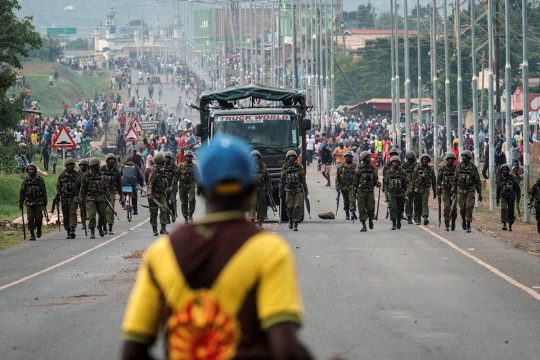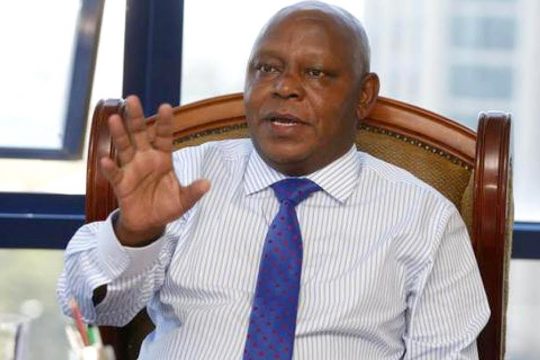As Kenya's presidential election looms, many in the country's Rift Valley feel a deepening dread.
It was in this fertile region in western Kenya that ethno-political violence flared in 2007 and continued into the following year after President Mwai Kibaki's disputed re-election.
About 1,100 people were killed and 600,000 displaced, with the worst violence occurring between the two major ethnic groups in the region, the Kikuyu and the Kalenjin.
Before 2013 elections the two groups struck a political alliance, and President Uhuru Kenyatta, a Kikuyu, is again running alongside his deputy William Ruto, a Kalenjin.
As the August 8 vote draws near, some in the valley hope the alliance will keep the region calm.
But others say the fragile peace could easily collapse.
Seven of the 19 counties listed as hotspots for potential violence by Kenya's peace-building agency, the National Cohesion and Integration Commission, are in the Rift Valley.
"While major Kikuyu versus Kalenjin conflict is unlikely during elections scheduled for August 2017, serious local violence is possible," the International Crisis Group (ICG) concluded in a May report.
Though the campaign period has been calm in Nakuru county, residents and rights groups say an undercurrent of tension runs through the region.
Joseph Omondi, a human rights activist in the region, highlights that for Raila Odinga, 72, the main opposition candidate who claimed the 2007 poll was stolen from him, "it's this election or nothing else."
"That brings tensions because, in the event that the results are disputed, it can spark violence. That's what now is creating anxiety," he added.
- Hate speech -
In the valley, hate-speech flyers with explicit threats against those who vote for certain candidates have been circulating for months.
Human Rights Watch has documented several instances of intimidation between communities in Naivasha, another large town in the valley, where people were beaten, killed and forcibly circumcised -- an act of ethnic humiliatiation -- during the 2007-8 violence.
Some families have already fled the town, the head of the Anglican diocese Maurice Muhatia told local media.
While insisting "it's calm, it's peaceful," Naivasha reverend Adam Wachira told AFP there was "a sense of anxiety, because of what has happened in the past."
Despite heightened tension during the last presidential election in 2013, which was mostly peaceful even though Odinga claimed Kenyatta robbed him of victory, Naivasha remained calm.
This is seen as due to the alliance between Kenyatta and Ruto -- who were both hauled before the International Criminal Court for their alleged role in the post-election violence. The charges were later dropped.
- 'Superficial reconciliation' -
Despite their partnership, the ICG notes that "reconciliation remains superficial," in the Rift Valley, where conflicts over land have been common since Kenya's independence in 1963.
Omondi echoes the conclusion, saying much-promised land reform efforts have never been carried out.
"The true reconciliation is not there," said Omondi. He believes the Kenyatta-Ruto partnership is all that is keeping the valley peaceful.
"If Uhuru divorces with Ruto, you will see violence in Rift Valley, on the biggest scale you've ever seen," he said.
Many of the scars from the 2007 unrest remain visible in the region.
Steven Mungai has lived in a displaced persons camp outside Nakuru ever since his shop in the western city of Kisumu was torched after the disputed vote.
A Kikuyu, he said he can never go back to his former city on the shores of Lake Victoria, where Odinga's Luo ethnic group is dominant.
"Over there, I won't be able to sleep because if I recall what I encountered all those years, my heart starts racing," he said.
The Rift Valley is likely to remain a tinderbox, especially ahead of the next election in 2022 as it remains to be seen whether Kikuyus will maintain their pledge to back Ruto for president.
And there's no telling if Odinga's opposition coalition, which has repeatedly warned of election fraud, will tolerate a loss at the ballot box next week.
"If it's free and fair, there will be no violence," Omondi said. "But let me assure you, if it's rigged, there will be violence."


